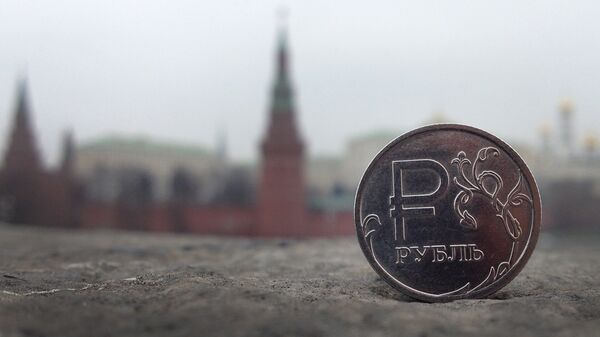Corrections to the 2018 state budget by Russia’s Ministry of Finance have revealed a surplus of 2.1 trillion rubles, far exceeding the expected 481.7 billion. While expenditures have hardly increased, the state's revenue has increased from 17.07 trillion rubles to 18.94 trillion.
In the third quarter of 2018, the numbers are even more promising, as Russia achieved an account surplus of 26.4 billion USD, which is more than in the boom year of 2008. This amounts to an absolute record of about 6.5 percent of GDP.
Taking the updated GDP forecast into account, the budget surplus is expected to constitute 2.1 percent of the gross domestic product (GDP). The last time these numbers were in the black was in 2011, and even then, the surplus didn’t exceed 0.8 percent of GDP.
READ MORE: Expansion of US Sanctions Unlikely to Impact Russia's Sovereign Rating — Moody's
The Russian economy witnessed a deficit over the past 7 years, which had particularly worsened by 2016 following sanctions in response to Crimea’s reunification with Russia, when the deficit grew to 3.5% of GDP.
The German outlet Welt links this “paradox growth” with rising oil prices. These fell dramatically between 2014 and 2016, but have grown by more than 16 percent since the beginning of this year, and by 75 percent since mid-2017. The newspaper cites experts from the Moscow Higher School of Economics, who concluded that higher oil price in the first half of 2018 accounts for half of the net profit growth in the Russian real economy.
However, this is not the sole reason for what Welt dubbed the “sensational” budget revenue. The outlet also points out that the new dynamics of the ruble have positively impacted the Russian economy, as the Russian currency doesn’t correlate directly to oil prices any more, in contrast to the previous trend. Even the recent increase of oil prices has had a marginal impact on the ruble.
The US sanctions have also influenced this trend, as they exerted downward pressure on the ruble. The Russian currency slumped in April when the US administration tightened its anti-Russian sanctions. Threats to impose further limitations in August also took their toll on Russia's currency.
The newspaper suggests that the sanctions had unexpected results, benefiting export-oriented companies. While the flow of petrodollars rose significantly, state expenses have remained the same. Additionally, the cheap ruble has made imported products more expensive for locals, so imports are falling amid declining consumer demand while export revenues are rising.
At the same time, major investment projects such as the Crimea Bridge have been completed this year, which could reduce the import of capital goods, according to the assessments of some experts cited by the media.


